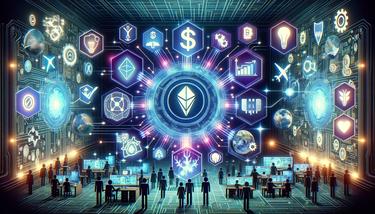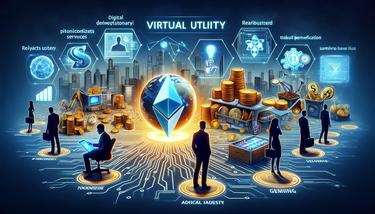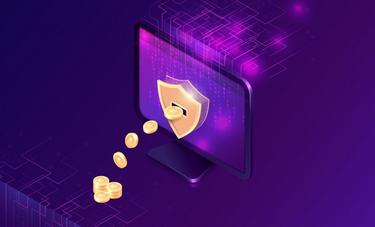Utility
The concept of ‘utility’ in the context of virtual assets[1] refers to the practical and functional use that a digital asset offers beyond mere investment. This utility can manifest in various forms, including access to services, governance rights within a platform, or as a medium for transaction within a digital ecosystem.
- Access to Services and Products
- Governance and Voting Rights
- Medium of Exchange
- Key Facts
- Utility
- Decentralized Financial Services (DeFi)
- Cross-Border Payments and Remittances
- Smart Contracts and Automated Agreements
- Tokenization of Assets
- Digital Identity and Privacy
- Supply Chain Transparency and Efficiency
- Access to Global Markets
- Governance and Voting
Access to Services and Products
Many virtual assets are designed to offer holders specific services or products. For instance, a digital token[2] might grant access to a software platform, enable premium features within an application, or even represent a subscription to a service.
Governance and Voting Rights
Some virtual assets confer governance rights, allowing token holders to participate in decision-making processes about the future development of the project or platform. This democratizes control and aligns the interests of users and developers.
Medium of Exchange
Virtual assets can also serve as a medium of exchange within specific ecosystems, facilitating transactions, rewards, and incentives. They can be used to pay for goods, services, or even to incentivize certain behaviors within the community.
The utility of virtual assets is a fundamental aspect that differentiates them from traditional cryptocurrencies[4] and assets. By providing real-world value and functionality, these assets are paving the way for innovative applications and ecosystems.
Key Facts
- Virtual assets can provide access to specific services, products, or features within digital platforms.
- Governance tokens allow holders to participate in decision-making processes, influencing the direction and policies of the project.
- As a medium of exchange, virtual assets facilitate transactions within their respective ecosystems, enhancing liquidity[5] and utility.
Utility
The emergence of cryptocurrencies has not only revolutionized the financial landscape but also introduced an array of utilities that extend far beyond mere speculative investments. These digital assets, underpinned by blockchain[6] technology, offer innovative solutions to longstanding problems across various sectors, enabling more secure, transparent, and efficient transactions. The utility derived from cryptocurrencies is vast and multifaceted, encompassing everything from financial services to digital identity, supply chain management, and beyond.
Decentralized Financial Services (DeFi)
Cryptocurrencies are at the heart of the DeFi movement, which aims to recreate traditional financial systems[7] with decentralized architectures. DeFi platforms leverage cryptocurrencies to offer services like lending, borrowing, earning interest, and more, without the need for intermediaries such as banks. This not only reduces transaction costs but also opens up financial services to unbanked and underbanked populations worldwide.
Cross-Border Payments and Remittances
One of the most immediate utilities of cryptocurrencies is facilitating cross-border payments and remittances. Traditional international money transfers are often slow, expensive, and encumbered by regulatory hurdles. Cryptocurrencies like Bitcoin[8] and stablecoins[9] provide a faster, cheaper, and more efficient alternative, enabling direct transactions between parties, regardless of geographic location.
Smart Contracts and Automated Agreements
Cryptocurrencies like Ethereum[11] introduced the concept of smart contracts, self-executing contracts with the terms of the agreement directly written into code. These automated contracts execute transactions automatically when predefined conditions are met, eliminating the need for intermediaries and reducing the potential for disputes. Smart contracts have applications in numerous fields, including legal processes, supply chains, and automated payments.
Tokenization of Assets
Cryptocurrencies facilitate the tokenization of real-world assets, such as real estate, art, or commodities, enabling them to be bought, sold, and traded more efficiently. Tokenization divides these assets into digital tokens on the blockchain, offering improved liquidity, lower transaction costs, and access to a global market. This process democratizes investment, allowing more people to own fractions of previously inaccessible assets.
Digital Identity and Privacy
With the rise of digital transactions, maintaining privacy and securing personal data have become paramount. Cryptocurrencies offer solutions for digital identity verification[13], enabling users to control and share their personal information selectively. Blockchain-based identity systems can provide a secure, immutable, and tamper-proof way of managing digital identities, reducing fraud and enhancing privacy.
Supply Chain Transparency and Efficiency
Cryptocurrencies and their underlying blockchain technology can significantly improve supply chain management. By tokenizing products and utilizing smart contracts, companies can track the movement of goods in real-time, verify authenticity, ensure compliance[15] with regulations, and automate payments and settlements. This transparency helps reduce fraud, waste, and inefficiencies, leading to more sustainable and ethical supply chains.
Access to Global Markets
Cryptocurrencies provide startups and small businesses with access to a global pool of capital through initial coin offerings (ICOs) or security token offerings (STOs). By issuing tokens, businesses can raise funds from investors worldwide without the need for traditional venture capital or banking systems. This opens up opportunities for innovation and growth, especially in regions with limited access to investment resources.
Governance and Voting
Blockchain and cryptocurrencies introduce new possibilities for governance and voting mechanisms. By leveraging decentralized networks, organizations can conduct voting in a transparent, secure, and tamper-proof manner. This technology can be applied to various domains, from corporate governance[16] and decision-making in decentralized organizations (DAOs) to public elections, enhancing integrity and trust in the voting process.
In conclusion, the utility derived from cryptocurrencies is vast, addressing not only financial transactions but also offering innovative solutions to complex problems across industries. As the technology matures and adoption widens, the potential applications of cryptocurrencies continue to expand, promising to reshape many aspects of our digital and physical worlds.
- Virtual Assets — Digital resources that have value in their use or as an investment, including cryptocurrencies and NFTs.
- Token — A unit of value issued by a project, representing various assets or utilities on a blockchain.
- Medium of Exchange — An intermediary instrument used to facilitate the sale, purchase, or trade of goods between parties.
- Cryptocurrencies — Digital or virtual currencies that use cryptography for security and operate on a decentralized system, unlike traditional currencies.
- Liquidity — The ease with which a cryptocurrency can be bought or sold in the market without affecting its price.
- Blockchain — A decentralized digital ledger recording cryptocurrency transactions across multiple computers.
- Financial systems — Complex systems comprising different institutions, including banks, markets, currencies, and policies, that support economic activities.
- Bitcoin — The first and most well-known cryptocurrency, was introduced in 2009 by Satoshi Nakamoto, who developed Bitcoin.
- Stablecoins — Cryptocurrencies designed to minimize the volatility of the price of the stablecoin, relative to some stable asset or basket of assets.
- Smart Contracts — Self-executing contracts with terms directly written into code, facilitating, verifying, or enforcing a contract on the blockchain.
- Ethereum — A blockchain platform with its own cryptocurrency, Ether, is known for smart contract functionality.
- Tokenization — The process of issuing a blockchain token that digitally represents a real tradable asset.
- Digital Identity Verification — The process of verifying the identity of individuals or entities digitally, often using cryptographic methods.
- Transparency — The characteristic of blockchain technology that allows all transactions to be visible and verifiable by all network participants.
- Compliance — The act of adhering to legal standards and regulations established by governmental bodies and regulatory agencies, particularly in the context of financial operations and transactions involving cryptocurrencies.
- Corporate Governance — The framework of rules, practices, and processes by which a gambling company is directed and controlled, ensuring accountability and fairness.



